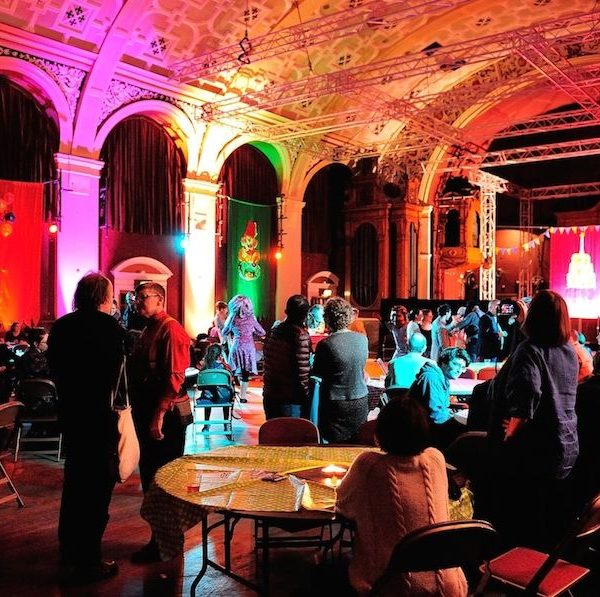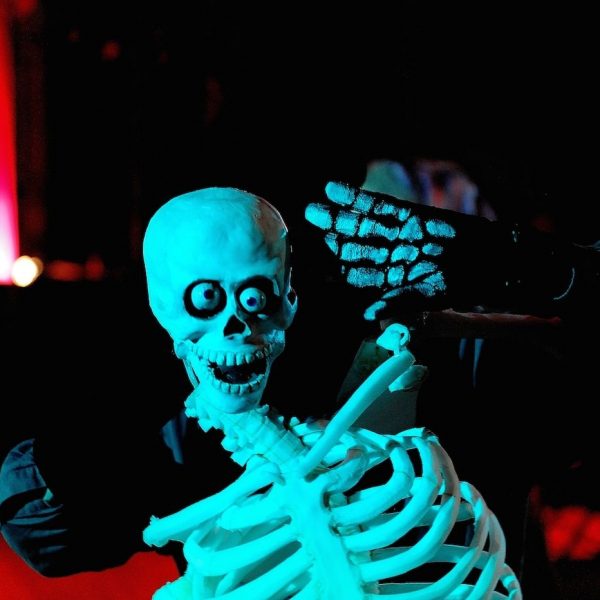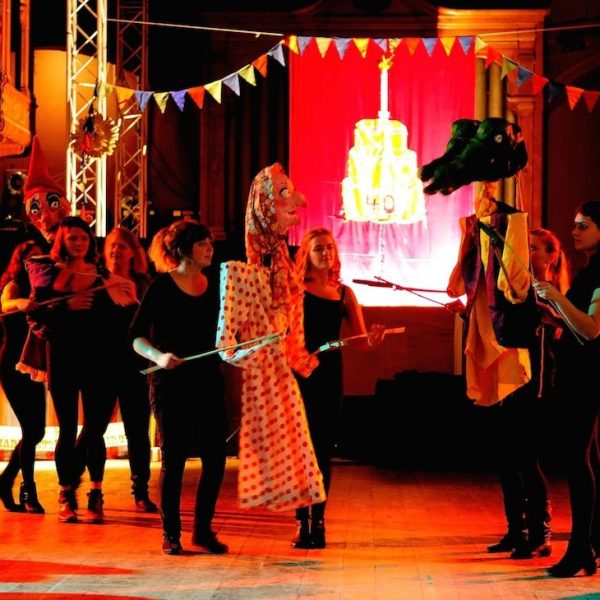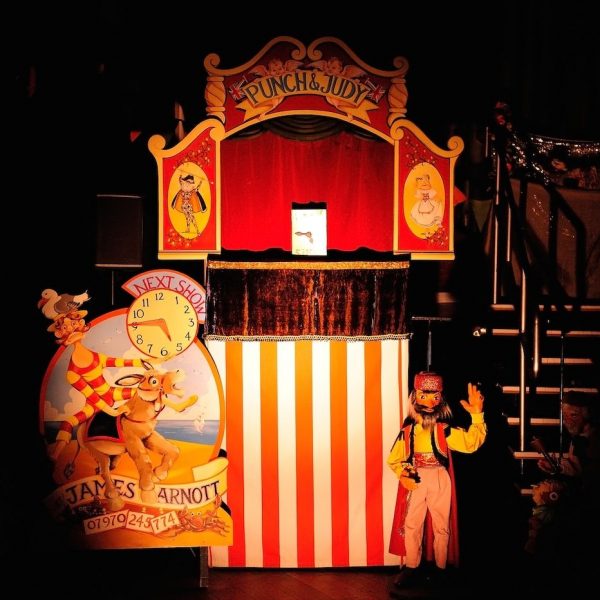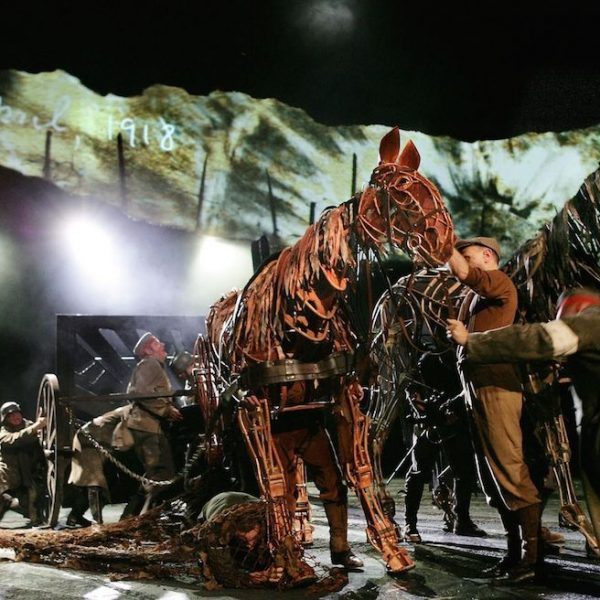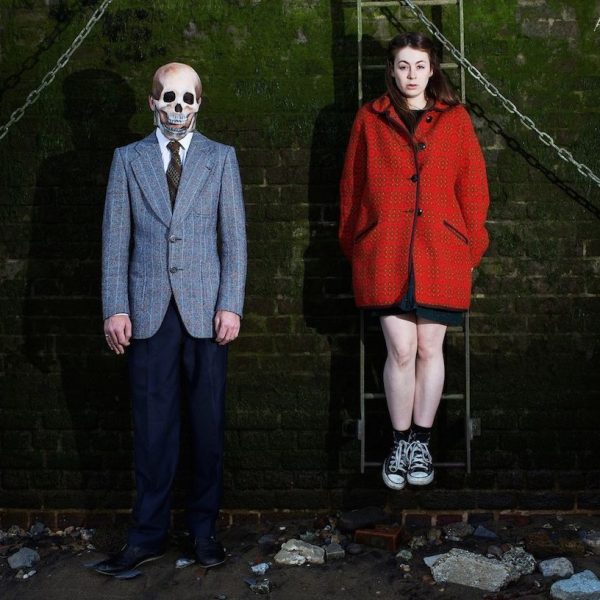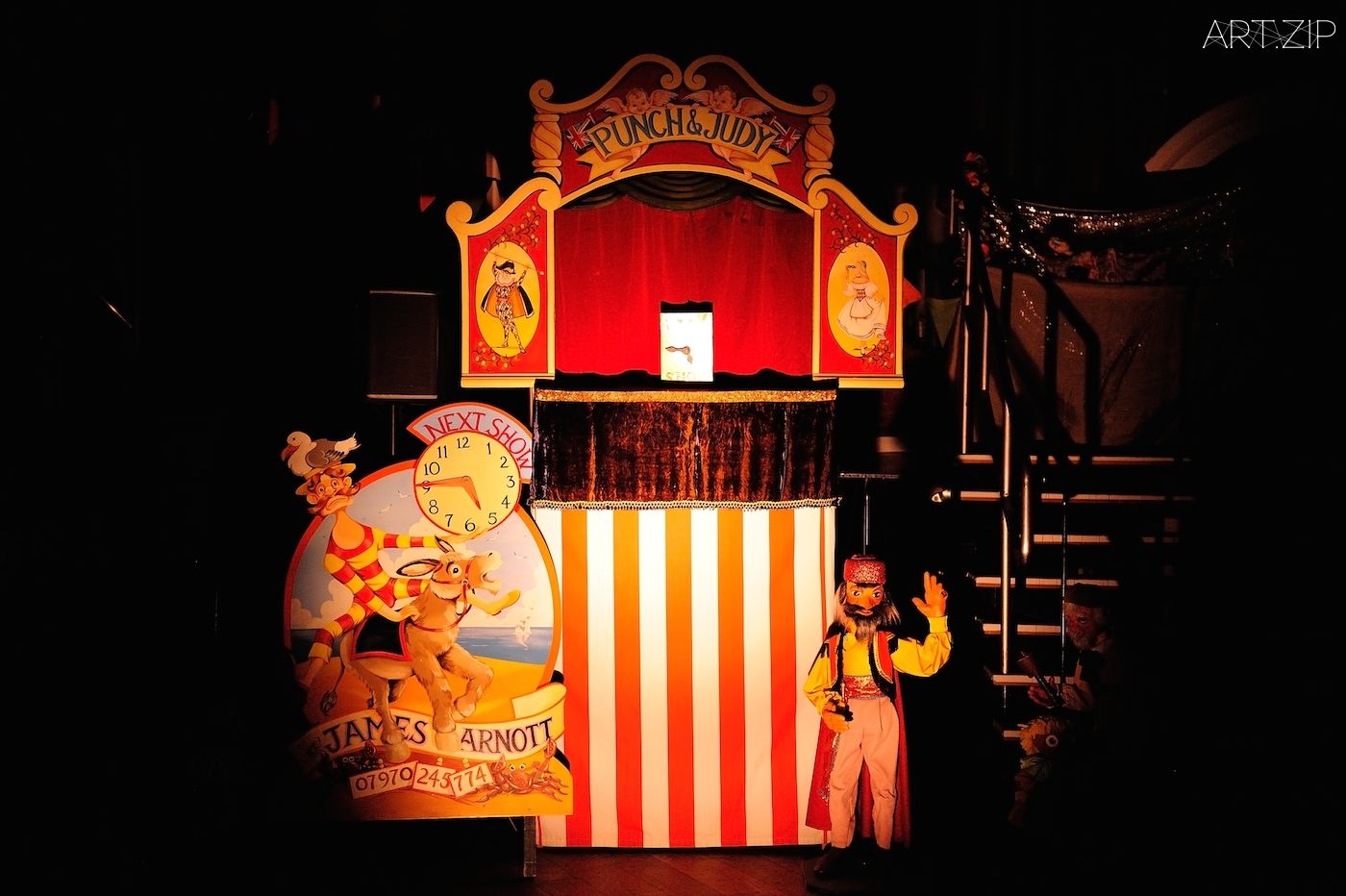
Interviewed by: Harry Liu 採訪:劉競晨
Text and edited by: Ava Davies 採訪整理:Ava Davies
Translated by: Michelle Yu 翻譯:余小悅
註釋:本文中所提及的木偶並非只是木質偶,只是出於習慣統一使用“木偶”相稱。
Interview with the Co-founder of Puppet Centre, Penny Francis
專訪木偶中心聯合創始人潘妮·弗朗西斯
“If we don’t know the answer to your question,
we know someone who does.”
As a national development agency for puppetry, Puppet Centre focuses on contemporary performance practice, encouraging innovation, whilst also respecting and preserving the heritage of the art form. Established in 1974°APuppet Centre’s strategic role incorporates the use of puppetry in outdoor arts, carnival, dance, opera, screen animation, and theatre sectors. Anticipating and responding to artistic developments and changes in audience engagement, the organization’s long-term role has taken a range of strategic routes over its 40 year history.
Puppet Centre promote and support all forms of puppetry, meaning the animation of figures, objects and materials on stage, TV and film. It especially encourages innovation and excellence in the art form, and also has developed and provided countless opportunities for the training of professional and educational practitioners, spreading better understanding of the unique techniques of the puppeteers to improve their status and widen their fields of employment.
Puppeteers and puppets are now to be found in the productions of Directors, Writers and Performers of all disciplines, including of course their own. Puppet Centre acts as a centre of knowledge and research, and a dispenser of information through its unmatched hub of contacts. It has staged conferences and forums, exhibitions and festivals. It is proud to be known as the principal and most effective advocate for the sector, an indispensable part of its infrastructure. To strengthen this infrastructure further the organization is about to embark on a sector-wide overview of the needs of puppetry and puppeteers nationwide which will publish its findings early in 2015.
作為全國性的木偶藝術發展機構,木偶中心著重推廣當代木偶藝術實踐,發揚傳統木偶藝術的同時也鼓勵其在藝術形式上的創新。為了讓人們更多地接觸並欣賞木偶藝術,木偶中心自1974年成立起就不遺餘力地推動木偶藝術的發展,使其融入到各種表演藝術中去,例如街頭表演、嘉年華、舞蹈、歌劇、動畫及各式各樣的劇場表演。
2014年,木偶中心迎來了成立40週年,其推廣並支持木偶藝術多樣化發展一直沒有停歇,不管是戲劇舞台上的木偶製作與運用,還是在電影電視裡的木偶使用。木偶中心特別鼓勵木偶藝術的創新發展和品質提高,因此提供了各式各樣的木偶教育及培訓。正因為木偶中心堅持不懈地為人們傳播木偶的操作及表演技巧,木偶藝術在現今各個藝術領域獲得更為頻繁的運用,而不再限於木偶戲劇表演本身。
木偶中心的專業性使其成為無可比擬的木偶藝術研究中心,他們通過講座、論壇、展覽和藝術節等方式把那些寶貴的關於木偶藝術的知識輸送到各個產業當中去。可以說,木偶中心是英國木偶產業基礎建設中最有效和最不可缺少的一環,為了加強這一基礎設施的建設,木偶中心將在2015年初出版關於英國木偶產業的全面介紹。
INTERVIEW
Penny Francis has been involved with the professional development of puppetry since 1961 and in 1974 co-founded the Puppet Centre Trust, a promotion and development organization designed to raise the profile and status of the art form. Francis also edited the magazine Animations for fourteen years and continues to support the work of the Puppet Centre Trust and Animations In Print. She is an international councillor for British UNIMA (Union 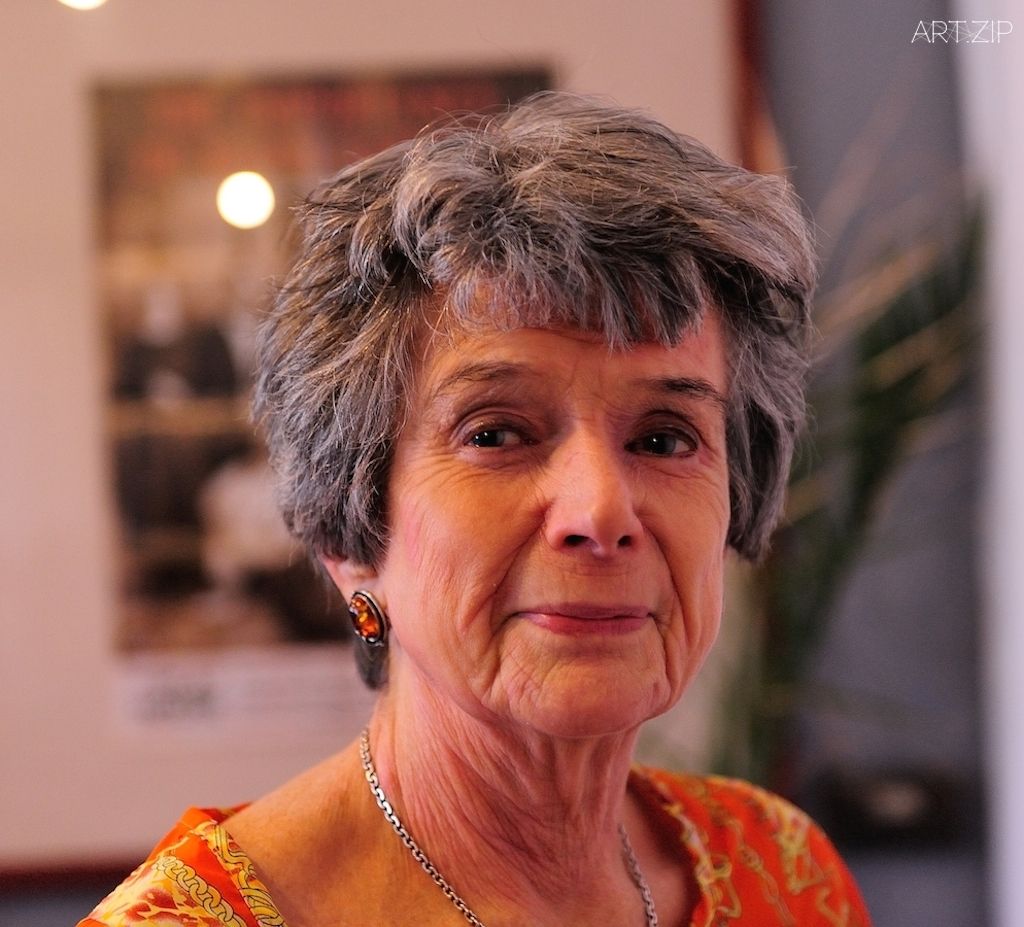 Internationale de la Marionnette) and sits on the International UNIMA Co-operation Commission. In 1998, Penny Francis was awarded an MBE for services to puppetry and an Honorary Fellowship in 2009 of Royal Central School of Speech and Drama.
Internationale de la Marionnette) and sits on the International UNIMA Co-operation Commission. In 1998, Penny Francis was awarded an MBE for services to puppetry and an Honorary Fellowship in 2009 of Royal Central School of Speech and Drama.
潘妮·弗朗西斯從1961年就開始投身於木偶事業,1974年創立了木偶中心基金會,致力於發展並推廣木偶藝術。從事了14年的《動畫》雜誌編輯工作後,弗朗西斯繼續支持木偶中心基金會和《紙上動畫(Animations In Print)》的工作,並同時為英國木偶聯合委員會(British UNIMA)及國際木偶合作委員會(International UNIMA Co-operation Commission)擔任專業顧問。1998年,為了表彰弗朗西斯在木偶藝術領域的卓越成就,英國女皇伊麗莎白二世授予其大英帝國勳章,2009年弗朗西斯被皇家中央戲劇與演講學院頒授榮譽院士。
────────
As a national development agency for puppetry, Puppet Centre focuses on contemporary performance practice, encouraging innovation, whilst also respecting and preserving the heritage of the art form. Established in 1974,Puppet Centre’s strategic role incorporates the use of puppetry in outdoor arts, carnival, dance, opera, screen animation, and theatre sectors. Anticipating and responding to artistic developments and changes in audience engagement, the organization’s long-term role has taken a range of strategic routes over its 40 year history.
作為全國性的木偶藝術發展機構,木偶中心著重推廣當代木偶藝術實踐,發揚傳統木偶藝術的同時也鼓勵其在藝術形式上的創新。為了讓人們更多地接觸並欣賞木偶藝術,木偶中心自1974年成立起就不遺餘力地推動木偶藝術的發展,使其融入到各種表演藝術中去,例如街頭表演,嘉年華,舞蹈,歌劇,皮影動畫及各式各樣的劇場表演。
Puppet Centre promote and support all forms of puppetry, meaning the animation of figures, objects and materials on stage, TV and film. It especially encourages innovation and excellence in the art form, and also has developed and provided countless opportunities for the training of professional and educational practitioners, spreading better understanding of the unique techniques of the puppeteers to improve their status and widen their fields of employment. Puppeteers and puppets are now to be found in the productions of Directors, Writers and Performers of all disciplines, including of course their own.
2014年,木偶中心迎來了成立40週年,其推廣並支持木偶藝術多樣化發展一直沒有停歇,不管是戲劇舞台上的木偶製作與運用,還是在電影電視裡的木偶使用。木偶中心特別鼓勵木偶藝術的創新發展和品質提高,因此提供了各式各樣的木偶教育及培訓。正因為木偶中心堅持不懈地為人們傳播木偶的操作及表演技巧,木偶藝術在現今各個藝術領域獲得更為頻繁的運用,而不再限於木偶戲劇表演本身。
Puppet Centre acts as a centre of knowledge and research, and a dispenser of information through its unmatched hub of contacts. It has staged conferences and forums, exhibitions and festivals. It is proud to be known as the principal and most effective advocate for the sector, an indispensable part of its infrastructure. To strengthen this infrastructure further the organization is about to embark on a sector-wide overview of the needs of puppetry and puppeteers nationwide which will publish its findings early in 2015.
木偶中心的專業性使其成為無可比擬的木偶藝術研究中心,他們通過講座、論壇、展覽和藝術節等方式把那些寶貴的關於木偶藝術的知識輸送到各個產業當中去。可以說,木偶中心是英國木偶產業基礎建設中最有效和最不可缺少的一環,為了加強這一基礎設施的建設,木偶中心將在2015年初出版關於英國木偶產業的全面介紹。
Interview with the Co-founder of Puppet Centre, Penny Francis
專訪木偶中心聯合創始人潘妮·弗朗西斯
ART.ZIP: How would you say about the puppet development in the UK?
ART.ZIP:木偶藝術在英國的發展順利嗎?
PF: At the moment, on the one hand, the Puppet Centre is the main infrastructure of the profession but it is in a very bad state. The Arts Council hasn’t given it any money for its last request and they are also having very bad cuts. The Puppet Centre is in a very bad state at the moment and we are starting special strategy to try and get representatives in the industry together, to talk about how we can strengthen our infrastructure.
PF:總的來說,木偶藝術在英國的發展很不錯,可是現在面臨著十分尷尬的狀況。一方面,木偶中心作為整個專業的基礎建設沒有得到全力的支持,英國藝術委員會的支助資金逐年減少,我們申請國家補貼都沒有得到回復,所以對於木偶中心的發展我是很擔憂的,我們沒法被動等待國家支持,只能採取別的策略,聯合各大木偶藝術機構來加強基礎建設。
On the other hand, however, the situation for puppetry itself is very healthy. There are more and more audiences, venues, young people engaging in the business, and the training for the industry is getting more and more frequent and in better places, for example, there’s a degree course at university level at the Royal Central School of Speech and Drama, and in two other colleges too. And as an option, puppetry is increasingly included in the training of performers 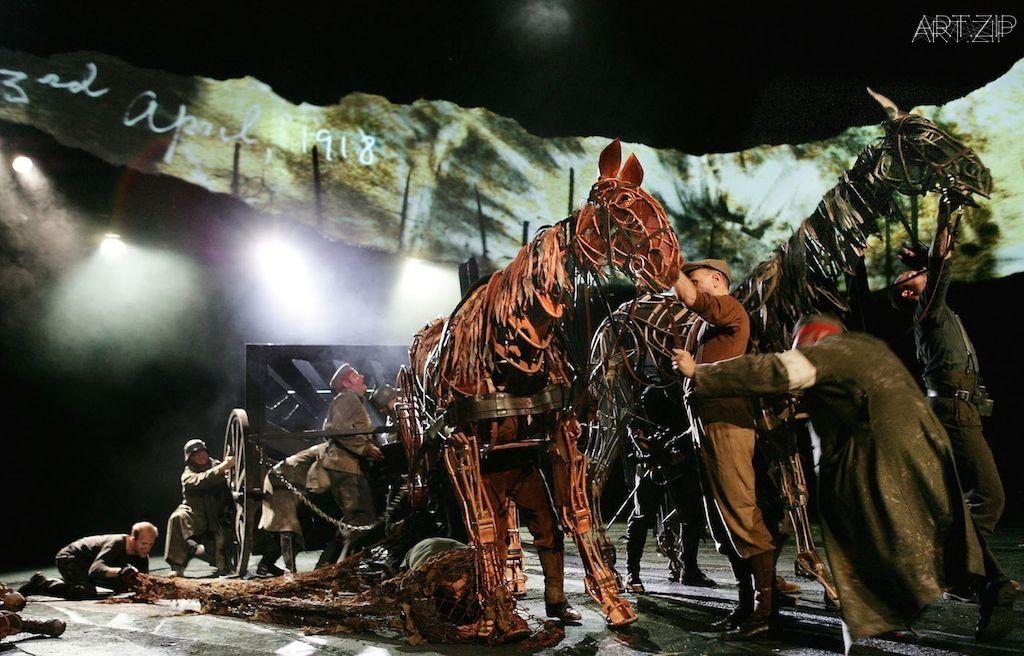 and actors. They are likely to meet the need to operate puppets more and more frequently, in mixed media performances and as characters even in straight theatre productions. For example the production of War Horse, which has been such a fantastic success, has done a lot to promote the status of the constituency. People can see how wonderfully they can capture an audience, and War Horse I believe has made more revenue for the National Theatre than any other production. Then there was a very popular production called Avenue Q, also in the West End. And then The Lion King is full of puppetry.
and actors. They are likely to meet the need to operate puppets more and more frequently, in mixed media performances and as characters even in straight theatre productions. For example the production of War Horse, which has been such a fantastic success, has done a lot to promote the status of the constituency. People can see how wonderfully they can capture an audience, and War Horse I believe has made more revenue for the National Theatre than any other production. Then there was a very popular production called Avenue Q, also in the West End. And then The Lion King is full of puppetry.
可喜的是,從另一方面來看,木偶藝術產業正蓬勃發展著。越來越多觀眾關注木偶藝術,越來越多的劇場和年輕人投入到木偶藝術產業中去,而木偶藝術的專業訓練也越來越正式和規範了,現在包括皇家中央戲劇與演講學院在內的多家學院都設立了木偶藝術的學位課程。另外,戲劇演員和藝術表演者在進行培訓課程的時候木偶表演也被納入選修範圍。大家開始注重如何在多媒體劇場裡運用木偶藝術,甚至在大眾劇場裡也更頻繁地使用木偶來作為劇中重要的角色。例如大家所熟知的《戰馬(War Horse)》就運用了大量的木偶,其取得的成功大家也有目共睹,不僅為國家劇院吸引了大量的觀眾和票房,這也大大地提高了木偶藝術的知名度和地位。倫敦西區還有很多熱門戲劇都大量用到木偶,例如《Q大道(Avenue Q)》,《獅子王(Lion King)》等等。
The thing is, quite often shows are full of puppetry and people don’t realise that it’s puppetry! The number of critics who called the puppets in War Horse ‘so called puppets’…No, for some people a puppet is a thing on a string, and for others it’s a Punch and Judy, but the range of puppetry is huge. It suffers because it is as much about fine art and sculpture and design as it is about drama and theatre.
有趣的是,儘管戲劇裡運用了大量的木偶但人們卻沒有意識到那是木偶藝術!有相當一部分的劇評人提到《戰馬》裡的木偶形容為“所謂的木偶”。並不是牽線娃娃或《龐奇與朱迪(Punch and Judy)》(家喻戶曉的英國傳統木偶劇)才算木偶表演,木偶藝術的範圍比大家所想的要寬泛得多。木偶藝術並沒有被作為一種正式藝術形式來正視,其實它既是藝術、雕塑和設計的結合,也是話劇和劇場的一種表現形式。
So, this is the two opposite ends of the spectrum: the lack of money for infrastructure like the Puppet Centre, and thehealthy state of the performances, lots of creativity and opportunities for training. We still have a long way to go but we have good critics now who understand what they see when they watch a puppet performance. Very few critics are trained in a literary way as well as a fine arts way, but nearly all good 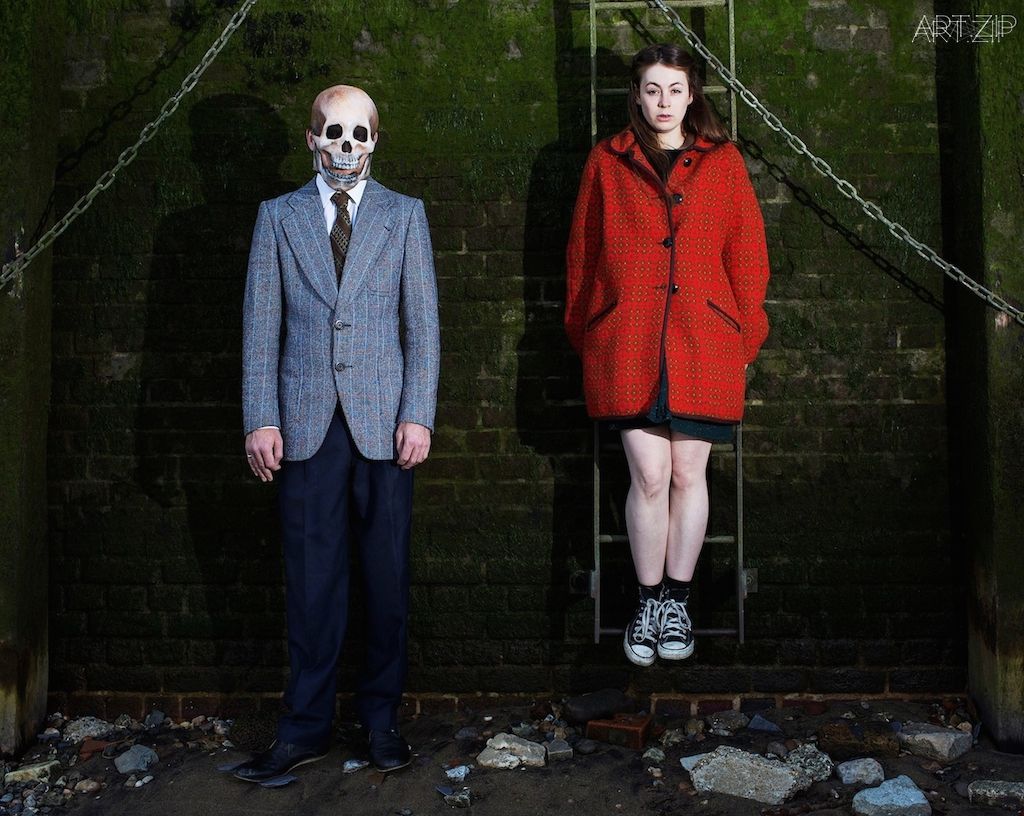 puppeteers are fine arts trained. And it’s difficult for the Arts Council to fix puppetry, and the schools! ‘Do we put it in the drama department or the fine arts department or the design department’. At the Central school they put it in the design department which is absolutely fine except you’ve got to allow for training to include performance because you have to be a good manipulator and understand how puppets can be used in performance; you can’t substitute them for actors, can you?
puppeteers are fine arts trained. And it’s difficult for the Arts Council to fix puppetry, and the schools! ‘Do we put it in the drama department or the fine arts department or the design department’. At the Central school they put it in the design department which is absolutely fine except you’ve got to allow for training to include performance because you have to be a good manipulator and understand how puppets can be used in performance; you can’t substitute them for actors, can you?
所以總的來說,就像我上面所提到的,木偶藝術的發展現狀是兩個極端,一方面,像木偶中心這樣的基礎建設並沒有獲得足夠的資金來完善,另一方面,木偶藝術正蓬勃發展著,各種創意項目的合作和專業的培訓也逐漸豐富起來。要走的路還很長,但現在現在已經開始有資深劇評人意識到他們在看的是木偶劇場了,這是一個好的徵兆。受過專業學術培訓的劇評人比藝術評論家少得多,但幾乎所有出色的木偶專家都有著純藝背景。藝術委員會和學院也都很難定義木偶藝術屬於哪個範疇:“到底是算戲劇呢還是純藝呢還是設計呢?”皇家中央戲劇與演講學院把木偶藝術納入到設計學院,這是沒有問題的,但課程設置應該包括木偶表演,懂得如何操作並運用木偶才有可能做出出色的木偶設計。你總不能依靠專業演員來進行木偶操作吧?
ART.ZIP: What about the development of the Puppet Centre, it is 40th years now, what is your story?
ART.ZIP:今年是木偶中心成立40週年了,你們是怎麼發展起來的呢?
PF: When the Puppet Centre was set up in the 1970s, puppetry was in a pretty bad state in this country. The Arts Council said ‘No, we don’t subsidise puppets’, and that was the beginning of this new artistry when I came in. I was an amateur puppeteer and my husband made the most beautiful puppets. And there were excellent puppeteers with good ideas for work for adults, but nobody was supporting them.
PF:木偶中心成立於1974年,就像我剛才說到的,木偶藝術在英國的發展並不是一帆風順的。當年木偶中心成立的時候,英國藝術委員會就拒絕給木偶藝術提供資助。我當時是一位業餘的木偶劇表演者,而我丈夫則是出色的木偶設計師。當時好些優秀的木偶劇表演者一心想要做一些有深度的、適合成人觀眾的木偶劇場,遺憾的是都沒有獲得任何支持。
There was no institution, they were all working alone in their rooms. And me and two or three other people got together and decided that something had to be done. And the idea was to improve the status, to get better audiences, to raise the standards of performance, to get training going, everything to publicise it and make it high profile.
當時沒有任何的專業木偶機構或組織,大家都是孤軍作戰的。最後我和幾位志同道合的朋友決定為木偶藝術做些什麼。最初的想法就是單純地想要讓木偶藝術得到應有的關注,讓更多觀眾來觀看木偶表演,提高木偶劇場的表演水平,讓愛好者能夠得到專業的木偶製作或表演訓練等等,主要還是希望木偶藝術可以受到應有的尊重和重視。
The Puppet Centre made a lot of noise, we had our publications, very good PR and in 1972 we put on a national festival. And after that the Arts Council said ‘oh alright, we’ll support puppetry in our subsidies.’ And this was a big breakthrough and after that puppeteers were able to apply for funds and now there are still very few companies who get regular funding, but still some. And quite a few get project funding from the Arts Council.
木偶中心的成立確實引起了不小轟動,我們有了自己出版物,還有很好的公關,1972年我們還一鼓作氣舉辦了一個全國性的木偶藝術節。從此之後我們便受到了英國藝術委員會的資金支持。當時真是受到了相當大的鼓舞,木偶劇團、表演者還有木偶表演項目都得到了英國藝術委員會的各類補助。
So bit by bit things were getting better. Initially, talking about being interested in puppetry provoked reactions like from my mother who said ‘Penny, you’re eccentric.’ She didn’t mean it kindly! There’s still a bourgeois prejudice against 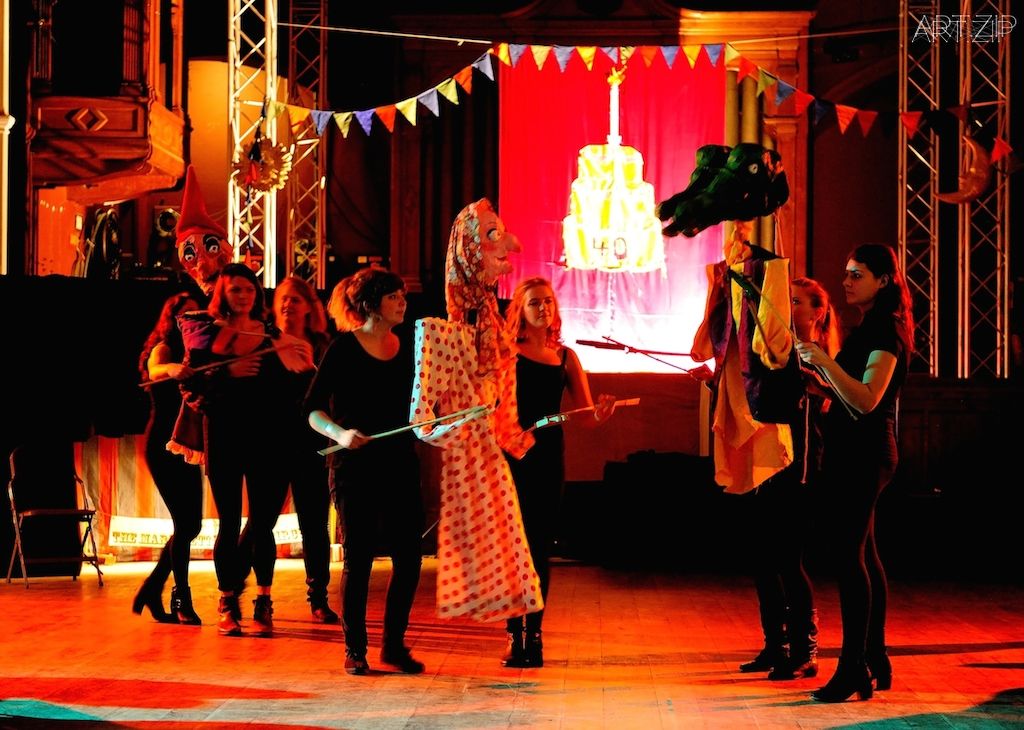 puppetry because to be absolutely honest, there aren’t enough really good shows, or if there are, they don’t have enough of a profile for people to be aware of them.
puppetry because to be absolutely honest, there aren’t enough really good shows, or if there are, they don’t have enough of a profile for people to be aware of them.
所以慢慢地,木偶產業的發展逐漸明朗起來。大家對木偶戲的態度有了明顯的改觀。當初要是跟別人說起你對木偶藝術感興趣,大家很容易投來奇怪的目光,我媽媽甚至對我說:“潘尼,你是個怪胎吧。”這不是玩笑,她真的這麼認為。還是有人帶著一種資產階級偏見來看待木偶藝術,但說實在的,也沒有很多質量高的木偶表演,就算有,也沒有引起人們足夠的重視和認識。
But the Little Angel Theatre are doing some very good shows. The Little Angel is in the forefront, Norwich Theatre is also doing some very good work, but really and truly puppetry needs these small theatres doing exquisite work; work that is lovely to look at and is also interesting in a dramatic way. And it’s amazingly difficult.
可是小天使劇場(Little Angel Theatre)還是有很多不錯的木偶劇場作品,它是木偶表演的先鋒劇場,諾維奇劇場(Norwich Theatre)也有很好的演出,但最重要的還是這些小劇場一直堅持在做高品質的劇目,視覺效果震撼的同時劇情演出各方面都是令人讚不絕口的。要做到這樣的平衡並不容易,甚至是極為艱難的。
Find out more:www.puppetcentre.org.uk

